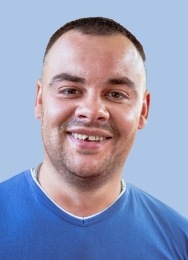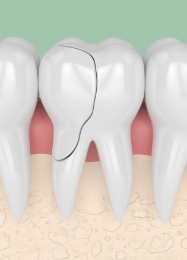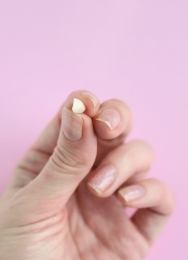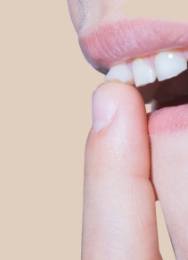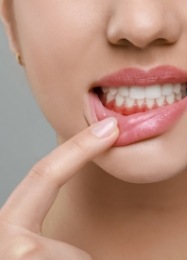Emergency Dentist Beaverton
You Can Count On Us for Immediate Help
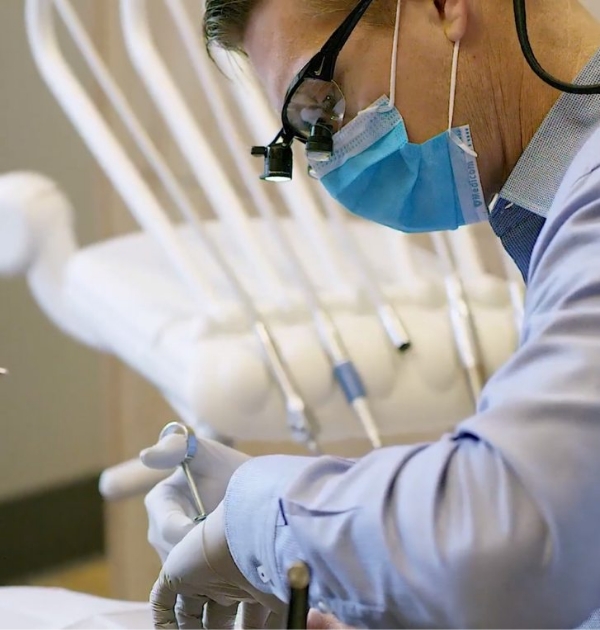
Unsure where to turn when a dental emergency occurs? Fearful of what might happen to a knocked-out tooth if you don’t get help right away? You can put these concerns and worries to rest. At Wolfe Dental Cedar Mill, you can count on our emergency dentist in Beaverton for immediate help, which means you are welcome to call our dental office for first-aid recommendations and same-day appointments when faced with a sudden dental crisis.
Why Choose Wolfe Dental Cedar Mill for Emergency Dentistry?
- Same-Day Emergency Appointments Available
- First-Aid Help From a Dental Team That Cares
- Your Dental Insurance Benefits Are Maximized
How to Handle Common Dental Emergencies
Handling common dental emergencies requires staying calm and knowing what to do when faced with an accidental injury, severe toothache, or a more serious infection. Our team is here to provide helpful tips and recommendations so that you do not cause more harm to your smile while waiting to get in to see us.
Keys to Preventing Dental Emergencies

It might seem impossible, but there are ways to prevent dental emergencies. While some are sudden accidents that cannot be avoided, we’ve provided some tips to help you safeguard your smile so that you don’t need a trip to the emergency dentist’s office:
Keep Your Biannual Checkup and Cleaning Appointments
There’s a common misconception that your biannual dental checkups and teeth cleanings are optional. They aren’t! In fact, they play a crucial role in reducing your chances of developing painful cavities, severe gum infections, damaged restorations, and the like. So, if it’s been longer than six months since your last visit to our Beaverton dental office, then get your next one on the calendar!
Stay on Top of Your Oral Hygiene Routine
Another easy way to wind up with a serious oral health problem, like tooth decay, is by not being consistent with your at-home oral hygiene regimen. That’s why we strongly recommend adopting healthy habits (i.e., brushing with a soft-bristled toothbrush twice a day, flossing daily, rinsing with an antimicrobial mouthwash each evening) and sticking to them!
Eat a Healthy, Nutrient-Rich, and Low-Sugar Diet
Although delicious, soda, candy, ice cream, and other sugary foods and beverages can negatively impact your teeth and gums if consumed in excess. That’s why we encourage our patients to keep added sugar to a minimum. Instead, focus on eating meals that are well-balanced, healthy, and filled with nutrient-dense foods. It will benefit your oral and overall health!
Wear a Protective Mouthguard If You Decide to Play Sports
Do you enjoy running, skateboarding, or riding your bike? Maybe you’re involved in a contact sport, like wrestling or football. Either way, you should wear a mouthguard to reduce your chances of experiencing a sports-related injury, like a knocked-out tooth. You should also wear a nightguard if you grind or clench your teeth at night to prevent premature wear.
Tip: If you don’t have a custom mouthguard, schedule an appointment with us! That way, we can have one made that fits comfortably and is the appropriate thickness for the sport you participate in.
Give Up Unhealthy Habits
Since smoking can wreak havoc on your teeth and gums, patients are encouraged to quit for the sake of their oral and overall health. However, that’s not the only unhealthy habit we recommend giving up. Since biting your fingernails, chewing on ice cubes, and chewing on the back of your pen can lead to infection and damaged teeth, we recommend quitting those as well.
Understanding the Cost of Emergency Dentistry
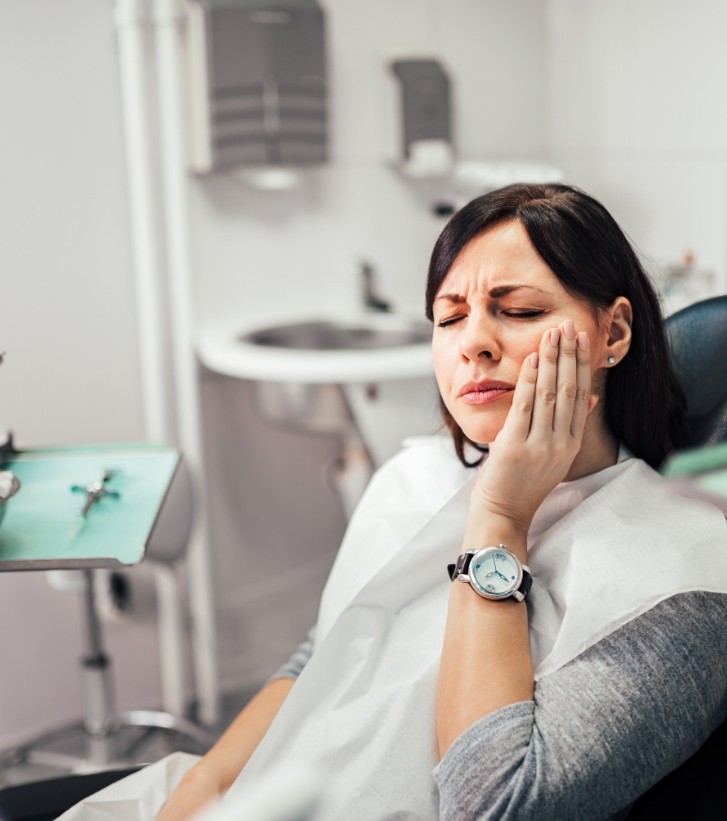
If you’re worried that the cost of your emergency dental care will be more than you can afford, don’t worry – our Beaverton dental team is here to help you navigate the financial side of your treatment as well. In fact, we provide price estimates upfront and offer a wide range of affordable payment options, including flexible financing with CareCredit. If you’re interested in learning more prior to your visit, then keep reading!
Every Dental Emergency is Different

First, it’s important to mention that treating a dental emergency will usually not cost much when considering the initial appointment. Plus, most dental insurance companies offer one free emergency exam each year. In other words, the cost largely boils down to the restorative care that you might need to fix the problem – that’s why the price varies from patient to patient! While one might need a small filling, the next might need root canal treatment and a dental crown. Again, we don’t leave you in the dark at your appointment; we will share our recommendations and provide you with an estimate of the price upfront.
Does Dental Insurance Cover Dental Emergencies?

As we mentioned above, most dental insurance providers cover the cost of one emergency exam annually. In addition to that, many cover 50-80% of the total cost of essential restorative care. For those two reasons, it’s definitely worth taking the time to review the fine print on your plan to see what is and isn’t included. If you have any questions, you shouldn’t hesitate to contact your provider directly. Or, you can ask our team for help!
Other Options for Making Dental Emergencies Affordable

If you are currently uninsured, then ask us about the other financial solutions we offer, including:
- Flexible Financing – With trusted third-party financiers like CareCredit, you can break down the total cost of your care into smaller, more manageable monthly chunks.
- Membership Plan – After paying the low annual fee, you can enjoy immediate benefits, including one emergency exam a year.
- Special Offers – Although our promotions change periodically, they are all created with the goal of helping make the care you need affordable.
Taking Care Of Your Smile Can Save You Money

It’s important to remember that many dental injuries are largely preventable. That’s why we always encourage our patients to adopt healthy habits, like brushing for a full two minutes each day and coming in for a checkup and cleaning twice a year. A few other recommendations include keeping added sugar to a minimum, wearing a mouthguard during sports, and not using your teeth as tools to open things. These might seem like small, inconsequential habits, but they can protect your smile from harm and your wallet from dwindling.
TMJ/TMD Treatment
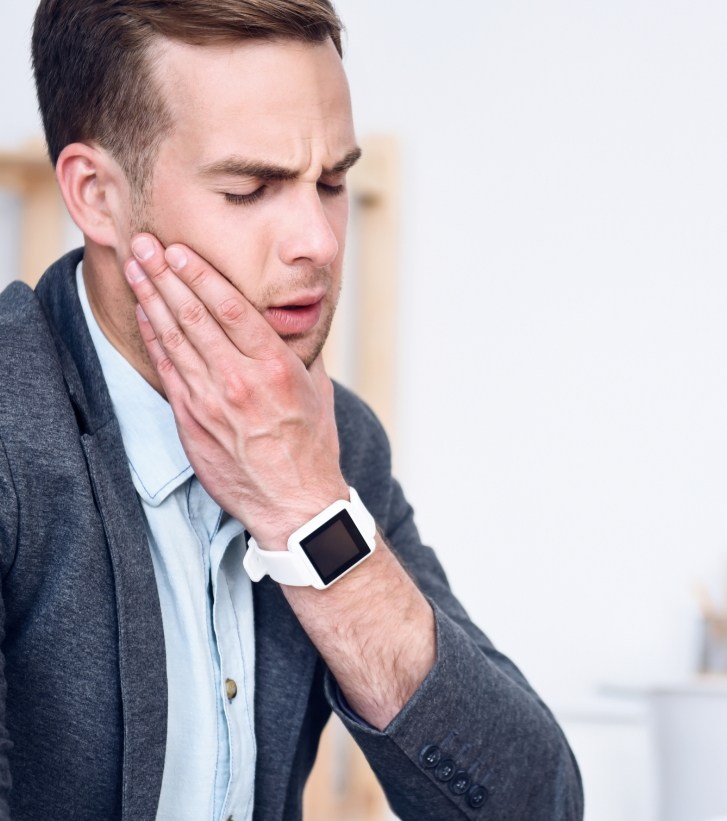
Chronic jaw pain can make it almost impossible to move through daily life. When you feel nothing but pain when opening and closing your mouth, it can become exhausting. Whether caused by bruxism (teeth grinding), a misaligned bite, or facial trauma, you can trust us to help with TMJ/TMD treatment. Using BOTOX injections, occlusal adjustments, and customized occlusal splints, we can help alleviate pain and allow for more fluid jaw motion. Over time, you will notice a dramatic difference in how your mouth functions, creating a more enjoyable way of life.
Learn More About TMJ Treatment
Dental Emergency FAQs
What should I keep in my emergency dentistry kit?
Having a designated kit for dental emergencies may seem excessive… until you or a loved one sustains a dental injury. If you don’t already have a bag or container near your First Aid Kit with the following items, now is a good time to create one:
- A small, clean container that can hold a tooth or restoration
- Dental cement (or other temporary filling material)
- Denture adhesive
- Floss
- The contact information of our dental practice
It’s also a good idea to keep items that aren’t dental emergency-specific in the same place, including sterile gloves (ideally nitrile), gauze pads, OTC pain medication (like ibuprofen), and floss.
What does chronic bad breath mean?
Sometimes, chronic bad breath is simply the result of a diet filled with fish, garlic, onions, and other pungent foods. Other times, it’s the result of tooth decay, gum disease, or another untreated oral health problem. So, if there is an unpleasant odor on your breath that doesn’t go away even after brushing and flossing your teeth, it’s important that you schedule an appointment with Dr. Ben Wolfe or Dr. Michael Yesenofski for an emergency exam.
Will my toothache go away on its own?
Technically, a toothache can go away, but not because the root of the problem is gone. For example, an infection that’s left alone to progress can “kill” the nerve of the tooth, making it no longer able to register pain. As you can imagine, this is not good news, even though the toothache has technically gone away. That’s why we strongly recommend reaching out to our Cedar Mill dental team when the symptoms first arise; we want to intervene with the necessary restorative care before the root of the problem worsens.
Do chipped teeth heal?
No, chipped teeth cannot heal on their own. In other words, the only way to restore the missing structure of your tooth is to come to our office so we can provide the necessary restorative or cosmetic care. Rest assured, we will review all of your treatment options with you at your appointment so you feel fully confident moving forward.
Can superglue be used to repair broken dentures?
Superglue should never be used to repair broken dentures because it contains toxins that shouldn’t be ingested. Plus, this household adhesive can affect the way food tastes and won’t last very long in a damp environment like your mouth. Simply put, if your denture breaks, don’t try to use something you have at home to repair it; call us ASAP to schedule an appointment.
Is my tooth pain from an infection?
It’s possible! However, this symptom could also be the result of a different problem, like a crack in your enamel, which is why we need to conduct a comprehensive oral exam before making any treatment recommendations.
How Should I Sleep with Tooth Pain?
Whether you’re dealing with a sharp, stabbing pain or dull, consistent discomfort, we have good news: there are several ways you can alleviate your symptoms until your appointment, including:
- Being selective about what you eat at dinner (no acidic foods, no sugary drinks, and no desserts)
- Using a cold compress for 10 minutes at a time
- Rinsing with warm saltwater
- Taking OTC pain medication as directed about 30 minutes before bed
- Keeping your head elevated throughout the night
Can I Pop a Dental Abscess on My Own?
Popping a dental abscess on your own can have a disastrous effect on your oral and overall health. If you notice a pimple-like bump on your gums, call us ASAP to schedule an emergency appointment. Then, one of our experienced Beaverton dentists can carefully open and drain the abscess before providing any additional restorative care that’s needed, like a root canal.
How Long Can a Tooth Last After It Has Been Knocked Out of Your Mouth?
In short, the tooth will start to die after about 15 minutes. That’s why it’s so important to get to our office right away. When you call our office to let us know what happened, we will also walk you through how to protect your tooth, starting with picking it up by the crown and extending to putting it back in its socket.
Is It Safe to Use A Toothpick?
If you have something stuck between your teeth, your first instinct may be to grab something sharp, like a toothpick. However, toothpicks can easily damage your enamel, irritate your gums, and push the debris further into position. Not only that, but swallowing a toothpick can be deadly. For all of those reasons, we do not recommend using a toothpick. Instead, rinse with warm saltwater to loosen the debris before flossing gently between your teeth. If that doesn’t work, give us a call.
Is a Cavity a Dental Emergency?
If we found a cavity during your biannual exam or you suspect you have a cavity because of the symptoms you’re experiencing, like pain when biting down, it’s in your best interest to get the restorative care you need right away. That said, if you can’t make it to our office right away for one reason or another, like you’re out of town, don’t worry – just come see us as soon as you can.
What Is Causing My Jaw Pain?
Chronic jaw pain often stems from chronic teeth grinding and clenching. That said, it’s possible for impacted wisdom teeth or TMJ dysfunction to be the culprit, which is why we need to complete a comprehensive oral exam at your visit. From there, we can review our findings, discuss your treatment options, answer any questions you have, and get to work alleviating your symptoms!
I Need a Checkup & Cleaning I Need a Dentist for My Child I am Worried about Bleeding Gums I Have a Cavity or Broken Tooth I am Missing One or More Teeth I am Unhappy with My Smile I Want a Straighter Smile I am Scared of the Dentist View Our Services


